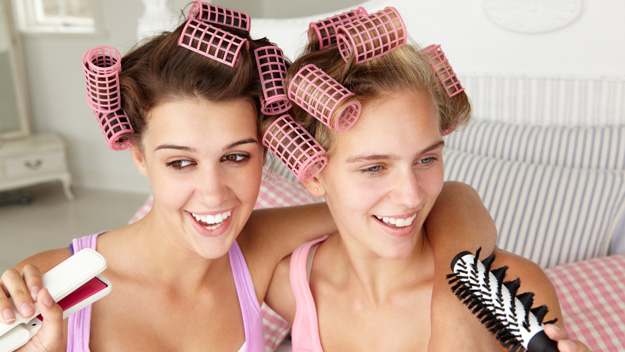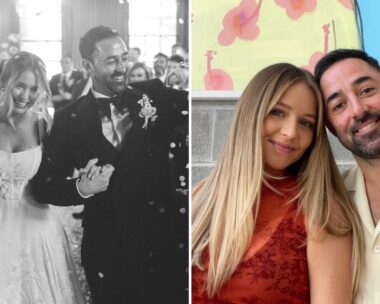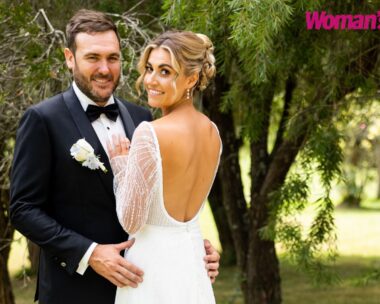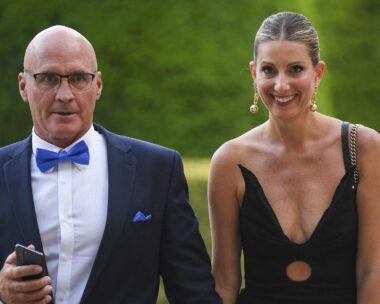Teenage girls are under more pressure to have sex than ever before, so it’s time to stop judging and start helping them, writes Jordan Baker.
Few things are certain in adolescence, but there’s one thing upon which teenage girls agree: pubic hair is out.
“Everyone shaves. Everything,” says Sydney 16-year-old Anne*. “If you’ve left it, you are classified as disgusting. You’d be embarrassed for the rest of your life. Boys would pay you out, call you hairy. People start shaving in Year 7.”
Related: What all parents need to know about sexting
They know, or think they know, a few other things, too. That oral sex doesn’t count as sex. That sending nude pictures via text or Facebook is the new flirting. That boys their age watch porn regularly and demand from their girlfriends the sexual menu they see online — hairless, surgically enhanced bodies, “girl-on-girl action” and much, much more.
They are learning from the 21st century’s version of sex education class, the internet; a more enlightening and forthcoming source than nervous parents and teachers. Yet these lessons are a dangerous mix of misinformation and distorted images of sexuality, which is contributing to behaviour that can leave young women with deep psychological and physical scars.
Teenage girls are under more pressure to have sex than ever before. The good news is we can help them through it, although that requires a few lessons of our own.
It’s human nature to judge adolescents by our experience — it wasn’t like that in our day, we scold. Yet for once, we are right — it really wasn’t like that in our day.
For one thing, girls are becoming women earlier than they used to. In the past 20 years, the age of menarche (first period) has dropped from 13 years to 12 years and seven months, and as many as one in six eight-year-olds have periods.
Children with “precocious pubescence” can start menstruating at five or six. Reasons range from better nutrition and obesity to the breakdown of the family unit.
“When dads aren’t around, they’re more likely to move into puberty earlier,” says parenting expert Michael Grose. “If it starts earlier, I imagine this would mean they are beginning to be sexually active earlier.”
In the past 60 years, the age at which girls lose their virginity has dropped from 19 (when many women were married in the 1950s) to 16, but many start much earlier.
Dolly magazine’s 2011 Youth Monitor found 56 per cent of teens first had sex between 13 and 15 years old, a figure backed up by an Australian study that found the age of girls’ first sexual experience ranged from 11 to 17 years, with a median age of 14.
Most worryingly, there has also been a marked increase in unwanted sex, an experience that can have a long-term effect on how a woman feels about herself and her sexuality.
“The main reasons are being too drunk or high and pressure from a partner,” Dr Mitchell says. “Alcohol [consumption] has gone up over time, too, and it’s intimately connected to their sexual behaviour.”
Rates of sexually transmitted diseases are rising, especially among 15- to 19-year- olds; in 2008, slightly more than 25 per cent of all chlamydia infections were in the 15- to 19-year-old age group and girls were diagnosed at three times the rate of boys.
These are just the statistics; the anecdotal evidence is more frightening. Michael Grose says there is a casual attitude to oral sex. “I’ve heard stories from teachers of oral sex occurring at school,” he says.
“My generation went behind the shed and had a smoke. It’s been put to me that oral sex at school is like smoking. That’s extreme, but I think extremes explain the norm.”
This doesn’t sound unusual to 16-year-old Anne. “Oral sex happens a lot. It’s before losing your virginity,” she tells The Weekly. “I had a 16th birthday party and apparently two people were doing it on my front lawn.”
The situation is so dire that sex education expert Debbie Ollis last month called for all students to receive porn education at school.
Research shows most children have viewed explicit content online before their 11th birthday.
Related: How to keep your kids safe online
Therefore, Ollis argues it is vital for all children to take special lessons to enable them to understand and critique what they see on the internet.
“Somehow, we’ve got to prepare them to be able to deconstruct and understand what they’re seeing and to realise that most of those images aren’t the reality of life,” she told the Geelong Advertiser.
“The internet is being used as a sex education tool without the expertise of an educator or more appropriate content to teach kids about intimacy, about desire, about safety, all those sort of issues.”
- names have been changed.
Read more of this story in the March issue of The Australian Women’s Weekly.
Your say: Do you think 11-year-olds should be given porn education lessons?

Video: Sexting and our kids




